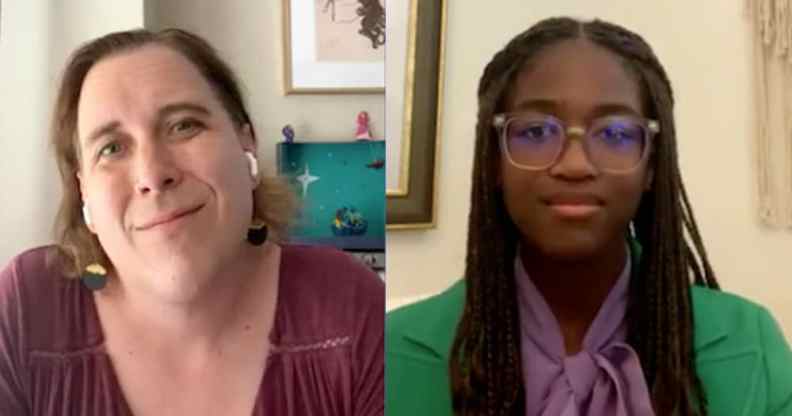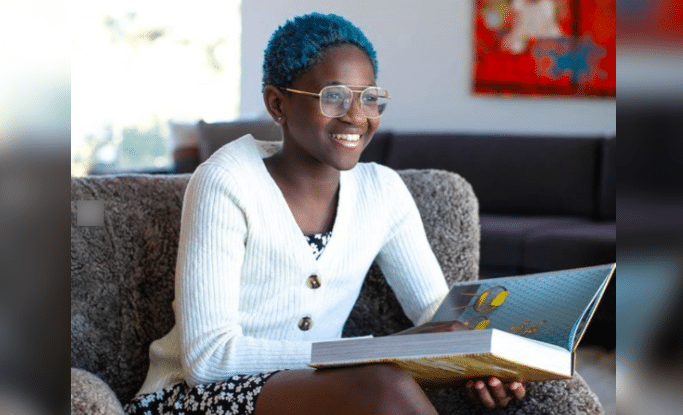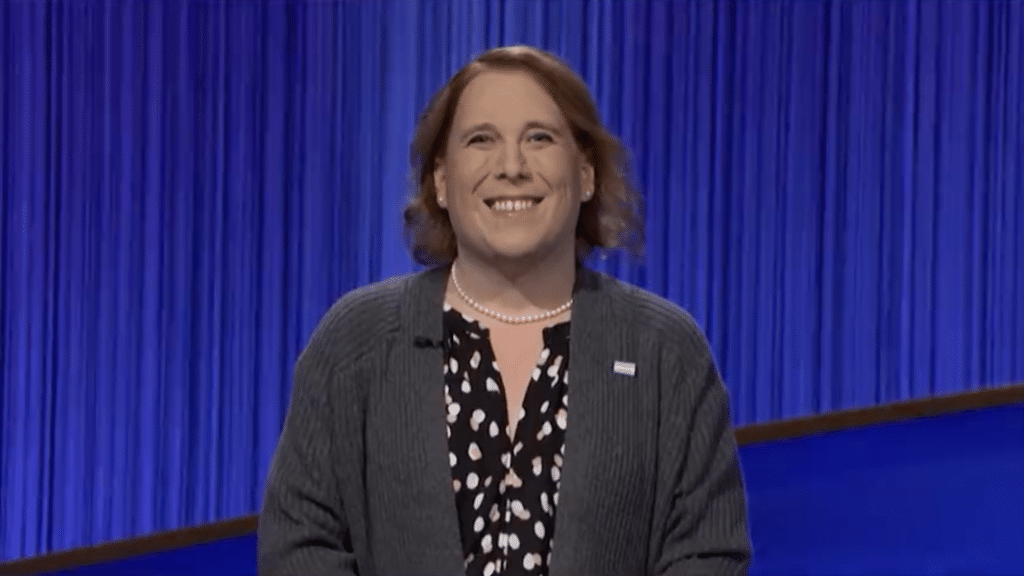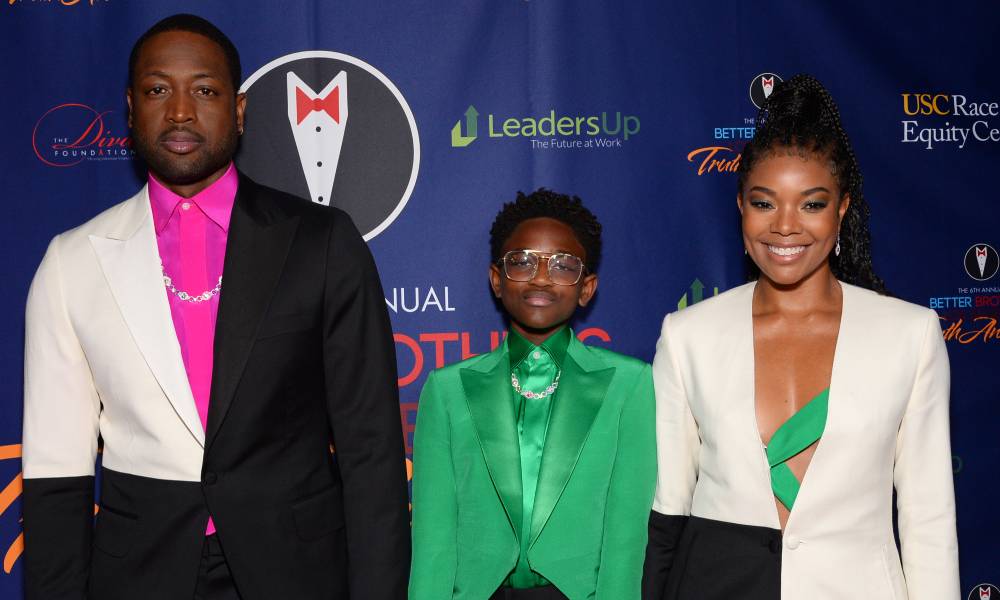Zaya Wade explains what she wishes cisgender adults understood about trans kids

Amy Schneider and Zaya Wade (Teen Vogue/Instagram)
Amy Schneider and Zaya Wade (Teen Vogue/Instagram)
Jeopardy! trailblazer Amy Schneider and trans activist Zaya Wade have weighed in on the importance of supporting LGBT+ youth in schools and communities amid the rise of discriminatory laws across the United States.
The trans icons got candid in a new interview with Teen Vogue and It Gets Better Project youth ambassador Zach Koung as they discussed the ways advocates and allies can continue the important work of creating more inclusive communities.
Zaya Wade revealed what she wished cisgender adults knew about trans youth.
“I honestly wish that a lot of adults understood and did not invalidate how confusing, uncomfortable and kind of abrupt, but also how beautiful being a part of any LGBTQ+ community is.
“I do think there is ‘Oh you’re just going through this’ or ‘Oh it’s fine’ – there is a lot of invalidation of what you’re going through, even if they do accept you as trans.”
The 14-year-old – who is the daughter of basketball star Dwyane Wade – then opened up about the trials and tribulations of social media and being a public figure as she mused: “I think social media is a great way to reach out to other people, and I also hope that I have helped people find their communities.

Zaya Wade, daughter of the NBA champion Dwyane Wade and actress Gabrielle Union. (Instagram/@dwyanewade)
Wade hopes that by being so public, “more people can learn to accept themselves, and others, and form other communities around the world”.
She added: “The expectation for anyone who has to represent the LGBTQ+ community is a lot and there is a lot of pressure there.
“Having someone or a group of people really helps me see the positives, while also recognising the negatives, and rise above them because I am me and no one is going to tell me otherwise anymore.”
Amy Schneider, who made history with a 40-day Jeopardy! run which earned her nearly $1.4 million, explained how she handled the responsibility of representing the trans community during her epic stint on the beloved quiz show amid such turbulent times in the US.
“I was expecting a lot worse, a lot more negativity… but far, far more support and affirmation,” she said. “That really taught me that we have come a lot farther than I had even thought.”

Jeopardy! champion Amy Schneider. (Twitter/ Jeopardy!)
She continued: “These [anti-LGBT+] bills that we’re talking about are doomed. The people are not moving in that direction and moving towards acceptance and equality.”
Amy Schneider said that while on Jeopardy!, “I think I felt a certain responsibility to be my best self and represent the trans community well”.
“But I was also worried about that in the sense that I don’t want to present a ‘too perfect’ image of myself,” she continued, “because I want everyone to be able to see that whether or not you are good at trivia, whether or not you have a lot of followers on social media, any of those things, you still deserve and can find the same acceptance, the same affirmation and freedom to accept who you are.
Schneider also shared her hopes for how society would react to future LGBT+ youth when they are coming out.
The TV star explained: “To keep in mind from an ally perspective, it’s a very big deal for the person coming out, but it doesn’t really mean anything to you, with the possible exception of changing pronouns or things like that.
“They have been what they are coming out as the whole time you’ve known them and nothing has changed. That’s something I think people should keep in mind.”

Dwyane Wade, Zaya Wade and Gabrielle Union attend the Better Brothers Los Angeles 6th annual Truth Awards in 2020 (Andrew Toth/Getty Images)
As the pair discussed their experiences of being trans in school, Zaya Wade recalled: “Most schools I usually were in were very conservative and no one really had any education or any form of knowledge. Throughout my entire journey, whether that be my gender expression or sexuality, I kinda felt I always had to tell someone something, to do this or say that, and it was a lot.
“I do think there is a lot more representation and more opportunity to reflect inwards based on how they are and how you can truly be you. I think it’s a lot better, obviously, there is a long way to go, but I do think that more representation does allow for more positivity and awareness of oneself. The journey is a little different but it is getting better.”
In an effort to show support for queer youth and provide opportunities to directly combat these types of discriminatory legislation and bans, The It Gets Better Project is currently offering a grant initiative, 50 States, 50 Grants, 5000 Voices, to help schools across the US become a safer space where queer students can express their identities.
Any queer student can apply for the grant and the deadline to apply is 15 March.

